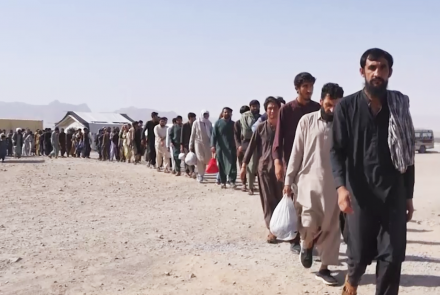A large number of Afghan migrants residing in Iran and Pakistan are complaining about various challenges in these countries.
They criticize the continued arrests and forced returns of Afghan migrants by the police in both countries and call on refugee-supporting organizations to address their problems.
Some of these migrants say that after the invalidation of census documents, Afghan migrants who went to the Kafalat office in Iran were issued exit permits.
Marufa Eshaqi, an Afghan migrant in Iran“The arrest and deportation of migrants, especially those with census documents, continues in Iran. When they visit the Kafalat office, they are issued exit permits requiring them to leave Iran within 15 days to a month.”
Safar Barez, another Afghan migrant in Iran, says: “The situation is becoming more difficult day by day, restrictions are increasing daily, and more people are being deported.”
However, Iran is not the only country where Afghan migrants face various challenges. Many Afghan migrants in Pakistan also report continued arrests and mistreatment by the host country, urging refugee-support organizations to seriously address their concerns.
Malak Mujahid Shinwari, an Afghan migrant in Pakistan“There are 1.4 million holders of PoR cards and 800,000 holders of ACC cards living here who have businesses and cannot wrap up and relocate their work in just one or two months. They are heavily involved in commercial activities in Pakistan.”
Atiqullah Mansour, another Afghan migrant in Pakistan, said: “Authorities in Afghanistan are obliged to engage, through mediation by international organizations including UNHCR and IOM and under international documents such as the Geneva Convention, in negotiations with officials in Islamabad and Tehran to resolve the issues of Afghan migrants in both countries.”
Meanwhile, the International Federation of the Red Cross and Red Crescent has issued a statement saying that due to the intensifying return crisis, the organization has launched an emergency appeal to support returning Afghan migrants.

